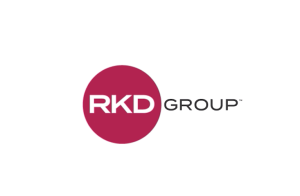More than one-third of nonprofits providing food in Canada have a waiting list and are turning people away due to lack of resources. And, leaders at nonprofit food programs are bracing themselves for an additional 18% in demand this year. This translates to more than 1 million people accessing food charity for the first time in 2024.
The data is from Second Harvest, Canada’s largest food rescue organization, in a new report title Hungry for Change.
“People in Canada can’t keep up with rising food costs,” said Lori Nikkel, CEO of Second Harvest via a statement. “More people are being pushed toward food charity, which comes as a last resort. Food charities already struggle to meet the current demand, with many of them being forced to turn people away and add their names to growing waitlists for support. Our systems are buckling under the pressure.”
The national survey measured how the charitable food sector, which includes food banks, faith-based organizations, schools, shelters and other social service organizations, anticipate how the need for their food charity programs are going to change this year. Leaders at more than 1,400 Canadian nonprofits supporting people with food were surveyed at the end of 2023. This is the second year Second Harvest has conducted this study.
Key findings from the nonprofit (NFP) survey include:
* 36% of NFPs say they have a waitlist of people who cannot immediately access their support. In Toronto, that number increases to 50%;
* Leaders at NFPs expect an increase of 18% in demand during 2024. In Toronto, that increase is expected to be 30%. That translates to more than 1 million people in Canada accessing food charity for the first time this year;
* 43% of respondents at NFPs say they’ll need an additional 50% or more perishable food next year to meet the demand;
* 52% of NFPs say they’ll need an additional 50% or more non-perishable food to meet the demand;
* The average need for funding per NFP increased by 13% from last year equating to $76,000 per NFP; and,
* Overall food prices are expected to increase by as much as 4.5% in 2024, representing an additional $701.79 for a family of four compared to last year. Food prices rose by 5.9% during 2023. That’s more than 10% in two years.
“Food charity is not a sustainable solution to food insecurity. It’s a band-aid for a gaping wound,” said Nikkel via the statement. “We need to treat the cause of food insecurity, not just the symptoms. Solutions that address poverty and provide quick relief are sorely needed. We need federal and provincial support and interventions like bringing back the Surplus Food Rescue Program, expanding the GST Grocery Rebate, increasing minimum wages and social assistance rates and lowering taxes for the lowest income households.”
A summary of the report findings, including regional results for Toronto, Montreal, Ottawa, Vancouver, Calgary and Halifax, can be found at: https://secondharvest.ca/hungryforchange









